20+ Interesting Things That Tourists Should Know Before Traveling To Other Countries
We all know that cultures are different from each other. The first time we travel to a new country, we don’t always know what we don’t know. Furthermore, when we go to a country, we have to adhere to their rules and norms. However, some mindset and cultural differences might be pretty startling. Therefore, this post will be your savior, assisting you in avoiding cringeworthy situations where you may humiliate yourselves - or worse: offend someone.
We have gathered of of the interesting things about other countries that you - a tourist just can't understand. Scroll down to check out these facts below. Hope that these things will help you when you travel to other nations. Also, don't forget to share this post with your friends if you find it helpful and interesting.
We have gathered of of the interesting things about other countries that you - a tourist just can't understand. Scroll down to check out these facts below. Hope that these things will help you when you travel to other nations. Also, don't forget to share this post with your friends if you find it helpful and interesting.
#1. Stores
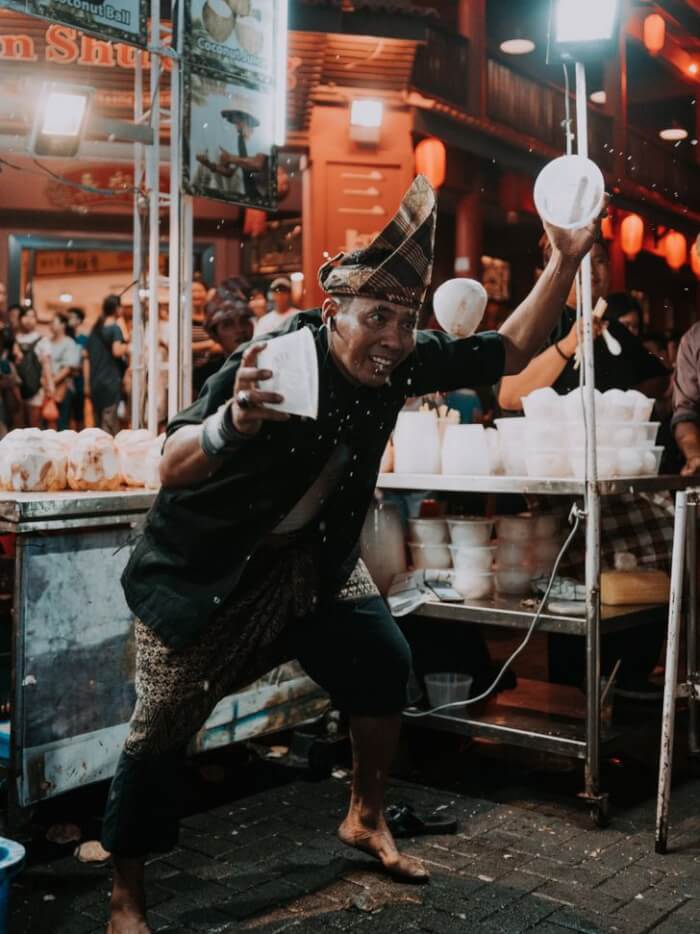 Source: unsplash.com
Source: unsplash.com
- In Sweden and other European countries, many stores only accept credit cards.
- In India, organized lines in stores do not exist. Whoever is the strongest and can push through, gets to buy the food. Even if there are 20-30 people, may have to wait for hours.
- In a Thai store, if you look at something for a long time, then decide not to buy it because you don't like it, the owner might get openly hostile. In general, the people there are nice, yet they might start yelling all of a sudden.
#2. Service
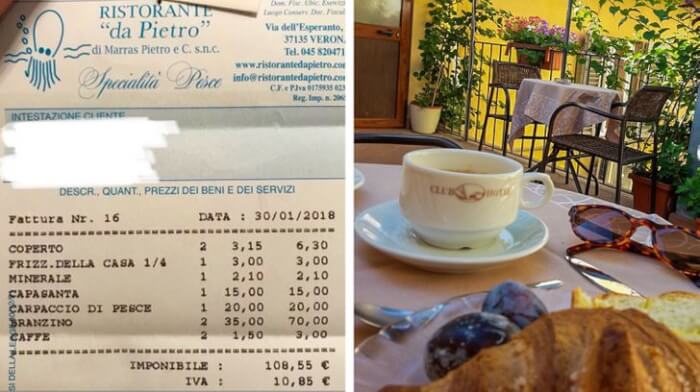 Source: tripadvisor.com
Source: tripadvisor.com
- In Italy, the service is included in the bill at almost every restaurant. Many travelers are taken aback when they see the final price since it is not what they expected. The Italian coperto is the service fee that varies according to the popularity and location of the restaurant.
- In Europe, an internet connection may be very costly.
- In Europe, it sometimes feels as though robots, rather than people, work in the service industry. It is impossible to negotiate with them and they may become ludicrous at times. An internet user shared a story, "We booked a transfer online for 2 people, but one day before our departure, one more person joined us. We were sure we would be able to negotiate with the driver. A bus that holds 50 people arrived, and only 4 seats were taken. The driver took our bags and wouldn't even listen to us: the reservation was for 2 people, so he could take only 2 people. So we traveled 80 miles on an empty bus."
- In Italy, coffee is priced differently at a table and at the bar.
- There are a lot of wires everywhere in Southeast Asia's streets. Apart from looking bad in images, they are frequently damaged, making it difficult for people to use the electricity.
- When you call a plumber, electrician, or any service worker in India, Nepal, or Sri Lanka, you might have to wait for them for weeks. Buying water is no different. It takes a long time to arrive, and tap water is best to be avoided in this region of the world.
#3. Food
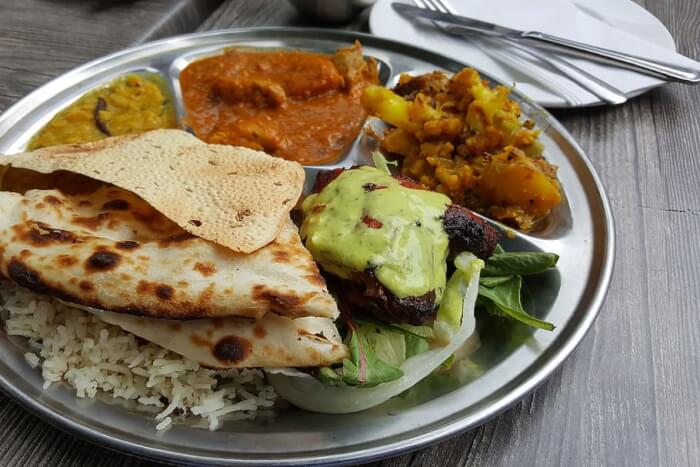 Source: pxfuel.com
Source: pxfuel.com
- In France, you can only buy cold popcorn.
- In Italy, people don't drink tea. The best you can get is a teabag that costs €3. To put this in context, €3 will get you two packets of tea at the grocery.
- Only the most fortunate individuals avoid contracting a stomach virus during their first week in India (even if you cook all the food yourself and wash your hands properly). However, after just a few days of torture, your immune system has honed itself to the point where it will never fail again.
- In Southeast Asian nations, people eat with their right hands. Because the "toilet business" is done with the left hand, don't touch your food with your left hand if you don't want to be laughed at.
#4. Paid services and using money
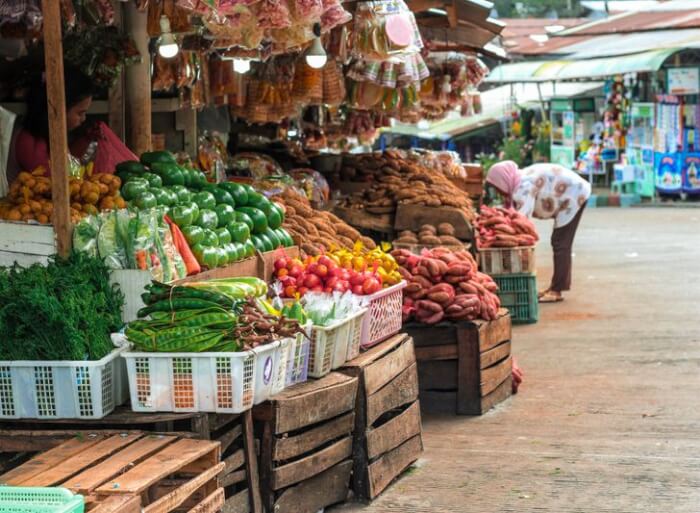 Source: unsplash.com
Source: unsplash.com
- Many shops in European do not have price tags on their items, and this is how they profit from tourists. Therefore, to avoid paying twice as much forsome souvenir, check out alternative options in other places.
- In Europe, paying cash for various services is impossible. You may be unable to go from your hotel to the airport if you do not have a credit card.
- In Western nations and Israel, you are expected to tip everyone for everything: cleaning your room, helping you with your luggage, providing you with a pool towel, and so on.
- In Europe, discounts and sales are never announced. You have to be conscious of them.
- In Georgia, it is not free to take the elevator when going up. It's not expensive, but you'll have to use the stairs if you don't have any coins on you (which you probably don't). When you're carrying baggage, it's not so much fun.
#5. Driving rules and transport
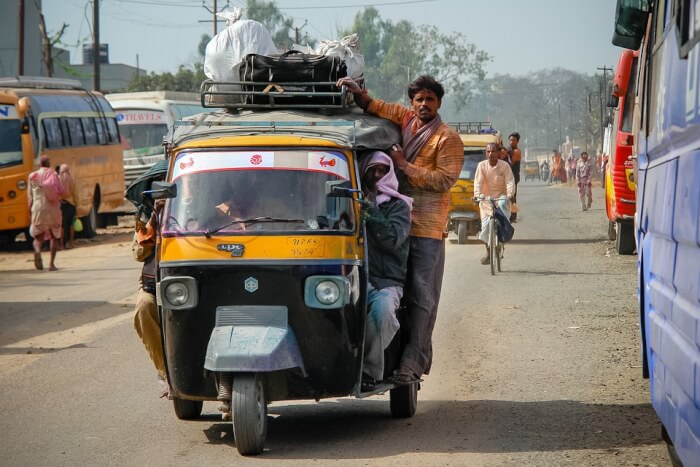 Source: pixabay.com
Source: pixabay.com
- If you don't speak Hindi, a rickshaw in India would likely charge you much more. In addition, itineraries and numbers of buses are not provided in English in the southern states of India. Malayalam and Kannada are the only two languages available.
- Driving laws are often broken in Bulgaria, Montenegro, and Georgia, in contrast to Western European countries.
- Prepare to spend a lot of money on public transportation in Great Britain. The cost of a single journey is £4.90 ($6.30).
- In Israel, there is no public transportation available during Shabbat except for taxis. You may also walk there.
- During rush hour in Vietnam, cars drive on the sidewalks. They travel at extremely high speeds and will drive right through crowds of people, just like cyclists in Germany. They may even shout at you if you are a slow pedestrian.
- In Thailand, it is nearly hard to find a taxi in Thailand that has a baby car seat, and driving in Thailand is extremely dangerous.
#6. Rules and fines
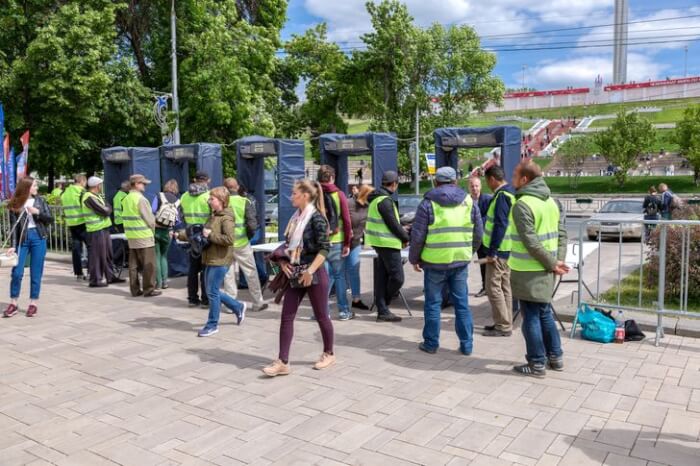 Source: depositphotos.com
Source: depositphotos.com
- In China, it may be really irritating to have to go through metal detectors all the time, even in the streets, and especially downtown.
- In Spain, if a police officer believes you were not respectful enough, you might be fined €500.
- The Berlin underground is separated into zones. The fine for entering a zone with the wrong ticket is €80. You buy the tickets from a vending machine with no one to ask for assistance.
- Throwing a cigarette or chewing gum on the ground can result in a $400 fine in Singapore. You will have to pay a $800 fine if you smoke in a public area.
- In Egypt, taking photographs of military objects and government structures is strictly prohibited. And you will go to jail for this.
#7. Habits, superstitions, and communication rules
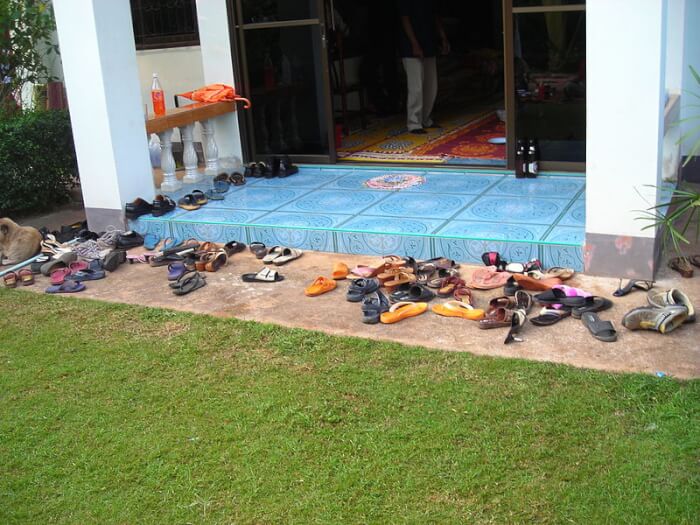 Source: wikimedia
Source: wikimedia
- When entering any building in Thailand, Indonesia, and some Southeast Asian countries, people take off their shoes. Taking off your shoes every time you enter a store is exhausting.
- In Canada, complaining to the authorities makes you a responsible citizen. Your neighbor may drop over, have a cup of tea with you, and be pleasant to your daughter, only for a bunch of people to show up at your door 30 minutes later because someone complained about your unmowed lawn.
- On a bus, Norwegians will never seat in front of someone they don't know. They will instead choose to stand on the bus, even if it is uncomfortable for them.
- What can be confusing is how friendly European people appear to be. An internet user said this, “I was visiting my friend in Sweden and I was treated like a Queen. Her husband is Swedish and he was very happy to help me. He drove me around their town, even though I tried to refuse. When I got back home, I was shocked by my friend’s call. She asked me to never come back again. It turned out that her husband was uncomfortable with me spending a whole month with them.”
- People in Georgia talk about all kinds of little things, all the time. Some people enjoy this, but if you spend 15 minutes talking about how you went to the shop, it may be exhausting.
- In Asia, nobody is in a hurry. When you're late for an airport flight, a taxi driver may simply stop and consume some street food for ten minutes.
- Many people in Southeast Asia may lie to you and mislead you when you ask for directions. They lie a lot for some reason.
- Depending on the context, the same head gesture made by Indians can imply yes, no, or I don't know.
#8. Other things
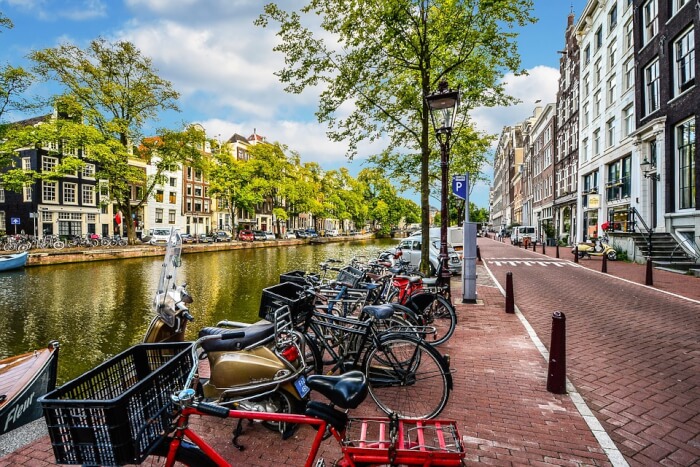 Source: pixabay.com
Source: pixabay.com
- There are no curtains on the windows in Sweden or the Netherlands. Mosquito nets are not used in France.
- Most Danish apartments don't have bathrooms, only showers. And the shower might not be in the bathroom but is sometimes found in the kitchen.
- Anyone will be irritated by the "wrong" power outlets in any country. Particularly if your phone battery is dying and you realize this in the evening, when all the stores are closed.
- In the United Arab Emirates, doctors prescribe way too many antibiotics. Even if you only have a headache or a runny nose.
- A regretful toilet story from an internet user, "When we were in India, we took a train to a different town." My friend went to the bathroom and 5 minutes later, he called me from the toilet. He was desperate. The Indians don't use toilet paper, but he didn't find this out until it was too late.
Share this article
Advertisement